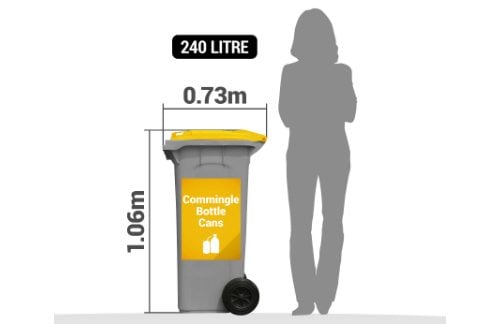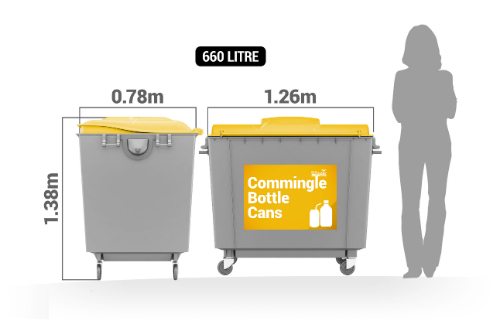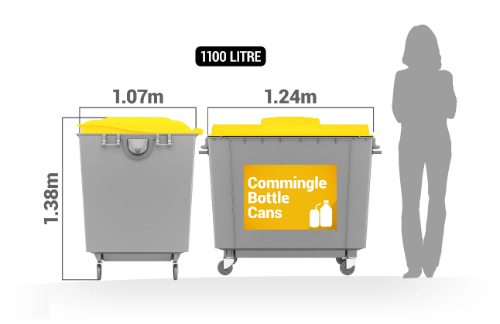Commingle Recycle Service 🥫🍾
Commingle Recycle Service. Commingled recycling / mixed recycling options for all businesses. 240 litre wheelie bins to 1100 litre large rear lift bins on 4 wheels. Commingled recycling is a cost effective and versatile recycling option for all businesses.
A 240 litre wheelie bin for commingled recycling would be suitable for many office based or smaller retail businesses. Larger bins enable larger volumes of containers to be recycled conveniently. Rear lift bins i.e. the 240 litre, 660 litre and 1100 litre bins are made from plastic and are easy to move around.
Waster recommends Commingled recycling for businesses as a key recycling service for most businesses.
Silhouette shown of female figure 1.65m tall (the Australian average). Note – Waster does not provide bin collection services at private residences.
Showing all 3 results
-

240 Litre Commingled Recycling Service 🥫🍾 Mixed Container Recycling
$14.18 – $38.64 Add to agreement -

660 Litre Commingled Recycling Service 🥫🍾 Mixed Container Recycling
$20.37 – $52.80 Add to agreement -

1100 Litre Commingled Recycling Service 🥫🍾 Mixed Container Recycling
$24.00 – $70.28 Add to agreement


